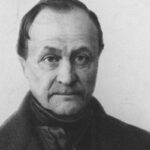We explain what conventionalism is in philosophy and linguistics. Also, social conventions and what naturalism is.

What is conventionalism?
Conventionalism is a philosophical and scientific movement that maintains that the laws of science do not describe the structure of the world but are useful conventions for predicting observable events. Thus, truth is nothing more than an arbitrary selection of axioms and principles.
The founder of conventionalism is Henri Poincaré (1854-1912), for whom science consisted only of conventions. Pierre Duhem (1861-1916) and Edouard Le Roy (1870-1954) were also conventionalists.
The conventionalism emerged as a variant of 19th century positivism close to the instrumentalism of Ernst Mach, Stuart Mill and John Dewey.
Poincaré's inspiration came from mathematics, discovering that the non-Euclidean geometries (which are all geometries that did not follow Euclid's ideas) of GFB Riemann and NI Lobachevski allowed mathematical truth to be interpreted as an invention of the human mind.
See also: Tradition
Conventionalism and Karl Popper
Karl Popper (1902-1944) was a philosopher of science, famous for having written the theory of falsifiability and the demarcation criterion. In his writings He referred to conventionalism from a critical point of view even though he knew how to recognize some of its advantages.
For Popper, what he did a conventionalist was to deny that the properties of the world could determine a logical construction. On the contrary, according to him, a conventionalist could maintain that it was that same logical construction that determined the properties of the world, and made it an artificial world.
Yes ok The Popperian perspective maintains that conventionalism is unacceptable he could recognize how he surpassed inductivism. This occurred because conventionalists understood how theories that postulated unobservable entities could not be obtained inductively. On the other hand, conventionalists demonstrated the importance of methodological decisions when intervening in the design of experiences.
Conventionalism in linguistics
In the field of language study, conventionalism is spoken of to refer to a current of language philosophy that defends the autonomy of the signifier with respect to the signified that is, its arbitrariness.
This means that the relationship that links the set of sounds that is a word (say: “tree”) and The object that this word designates (the real tree) is totally artificial and responds to a convention and not to some type of natural or spontaneous relationship.
In that sense, since the famous Swiss linguist Ferdinand de Saussure (1857-1913) published his General Linguistics Coursestructuralist linguistics is also considered conventionalist.
Conventionalism and naturalism
In the field of linguistics, and more specifically that of the philosophy of language, there are two contrary positions regarding the origin of language and its forms:
- Conventionalism. This position assumes that words come from the human creative act, that is, they are conventional and artificial. The linguistic sign is arbitrary and, therefore, language is a convention.
- Naturalism. This position maintains that language emerged as other features of the nature of living beings arise. For them, the language in its beginnings was true, fair and clear, and as the years went by, we humans degraded it and distanced it from its essence. This position is typical of classical antiquity, especially Hellenic antiquity, since it coincides with the basic assumptions of the religion of Ancient Greece. Cratylus (late 5th century BC) was one of its greatest defenders.
Continue with: Structuralism
References
- Lucero, S. (2007). Revisiting Poincaré's conventionalism and antirealism.
- Conventionalism. (2022, November 28). Herder Publishing. https://encyclopaedia.herdereditorial.com
- Adcock, C. (1984). Conventionalism in Henri Poincaré and Marcel Duchamp. Art Journal, 44(3), 249-258.
- Zahar, E. (2001). Poincaré's Philosophy: From Conventionalism to Phenomenology. Open Court Publishing.





